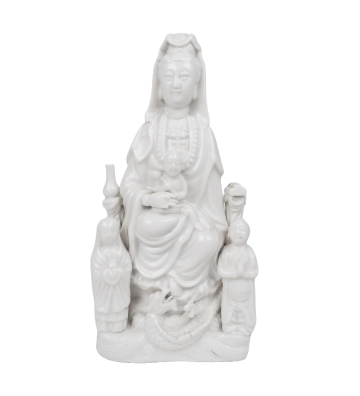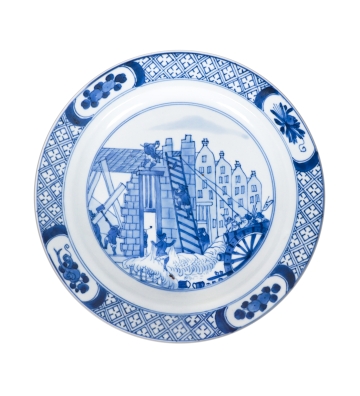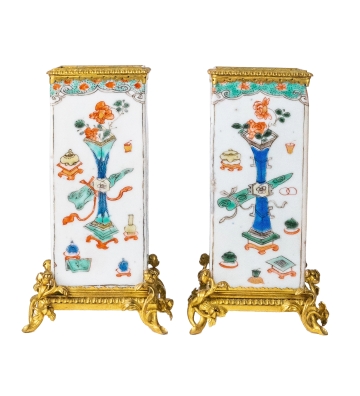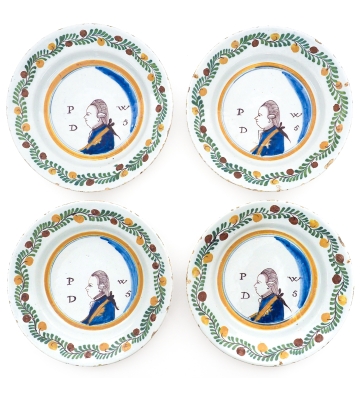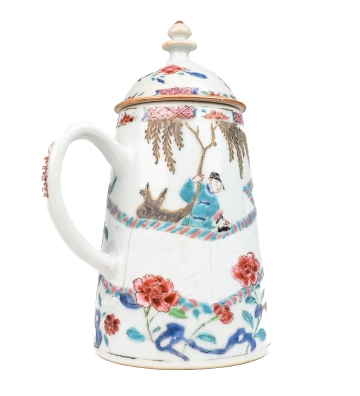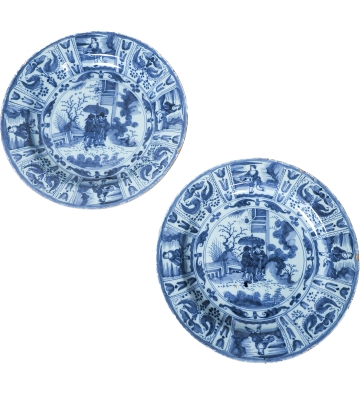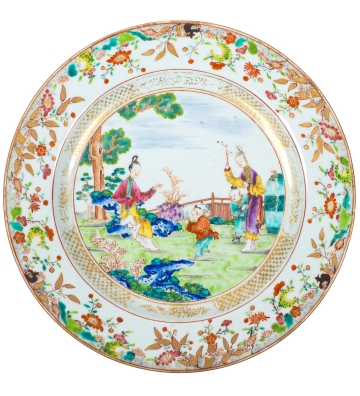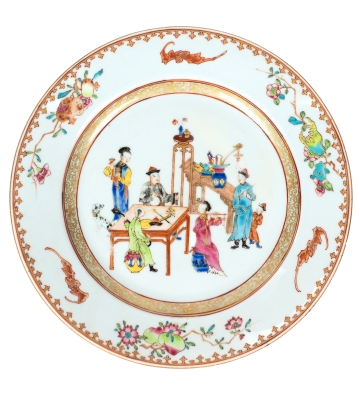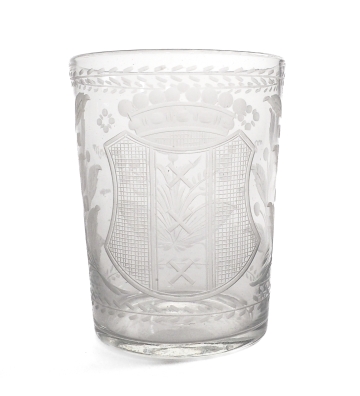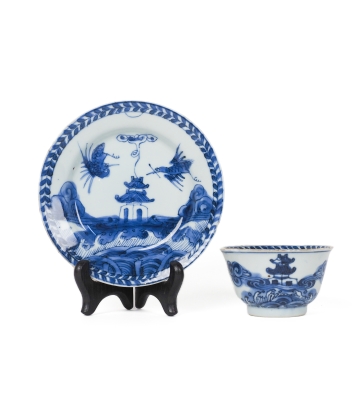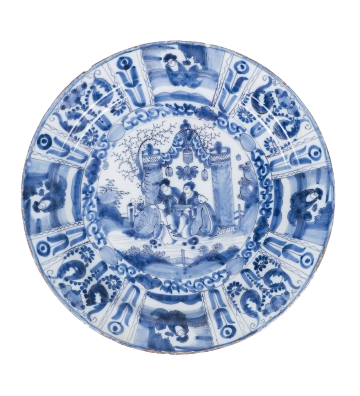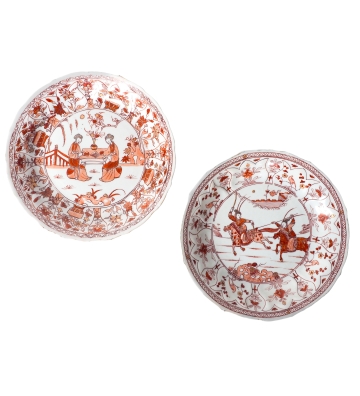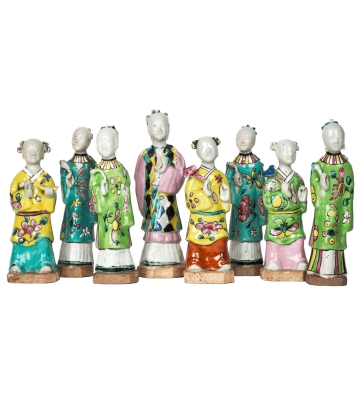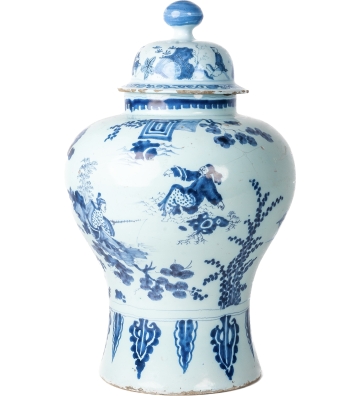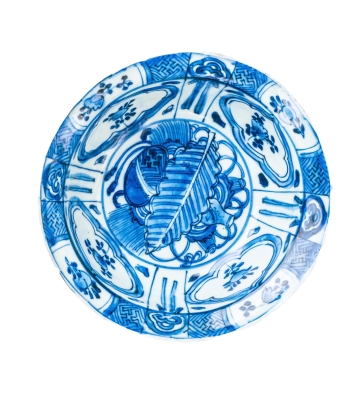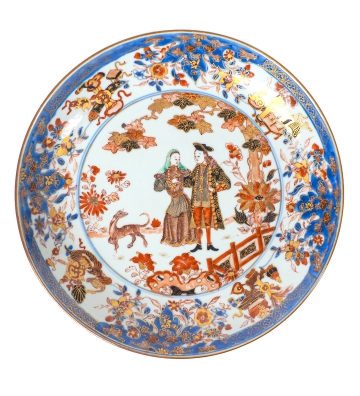This Blanc de Chine porcelain figure from the late 17th century, made during the Kangxi period (1662-1722) at the Dehua kilns in Fujian Province, shows a Guanyin (觀音) holding a child, with two attendants at her sides and a dragon below. She is crafted with a mix of mold-made and light handwork. Guanyin figures are the most popular of all Blanc de Chine representations and are a common sight in Chinese art. Known as the goddess of mercy, Guanyin was highly revered in Dehua, though her roots are in Tibetan Buddhism as Avalokitesvara, the original patron deity. Her name, a shortened form of "Guan shi yin," means "one who hears the world's sounds," and she is known for her compassion, listening to people’s troubles and offering comfort. Guanyin is beloved by the Chinese as a merciful deity, especially among those hoping for children or preparing for journeys by sea.
She is typically depicted wearing a white robe, crowned in a style similar to Amitabha Buddha, and often shown holding a child. Beside her are Longnü (a girl) and Sudhana (a boy), with a rocky base holding a book on one side and a vase on the other. Sudhana, translated as Child of Wealth, along with Longü 'Dragon girl' are considered acolytes of the Guanyin. Guanyin’s qualities draw parallels to the Virgin Mary in Catholicism, and some Blanc de Chine statues even depict the Virgin Mary with a child, blending Eastern and Western traditions. While Guanyin's worship has origins in India, she has inspired countless stories and legends in China. Her earthly home is considered to be Mount Putuo, an island south of Shanghai on China's eastern coast. Putuo Shan is one of the holiest places in Buddhism, and its Guanyin temple is a major pilgrimage site. Guanyin's birthday is celebrated on February 19th, while her enlightenment is commemorated on September 19th, drawing many pilgrims to Mount Putuo on these dates.
Condition: Very good, only tiny pieces of the fingers are broken.
Provenance: Robert McPherson Antiques.
Reference: for a similar example see: Christies 23 July 2013, Online Auction 3427 'Blanc de Chine: Dehua Porcelain from the Galster-Ireland Collection', lot nr. 4.
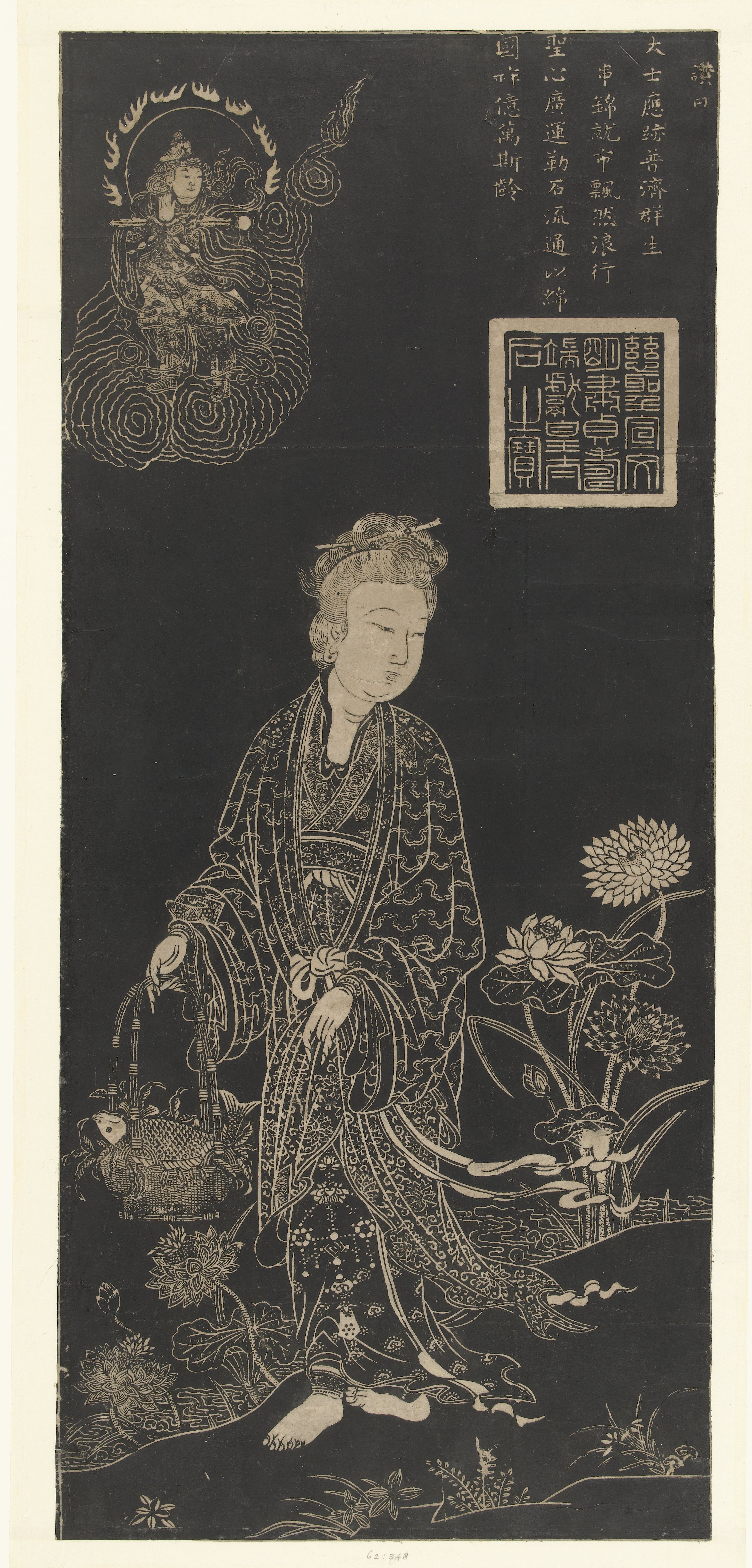
(Guanyin, the goddess of Love and Benevolence, anonymous, ca. 1600 - ca. 1699) source: Rijksmuseum.

